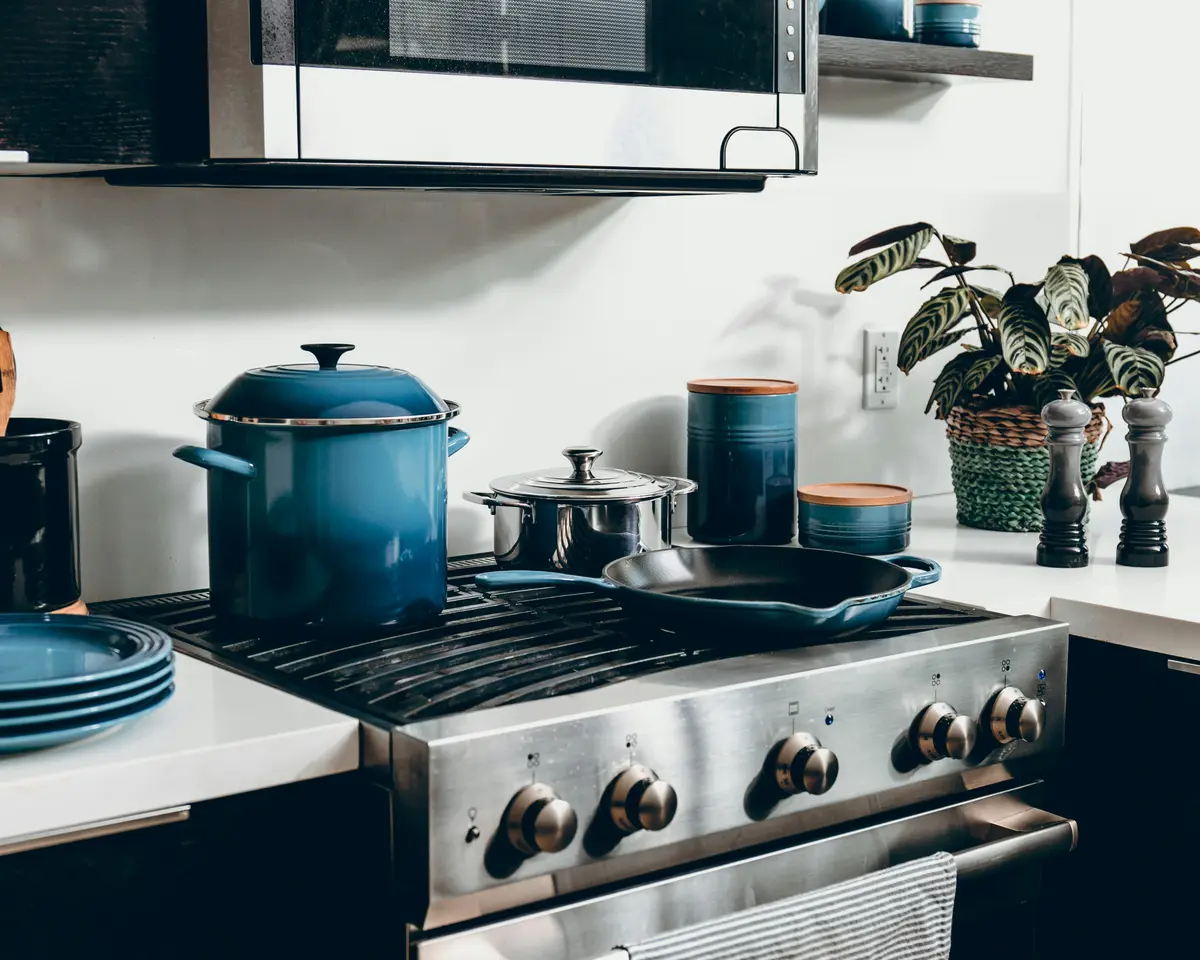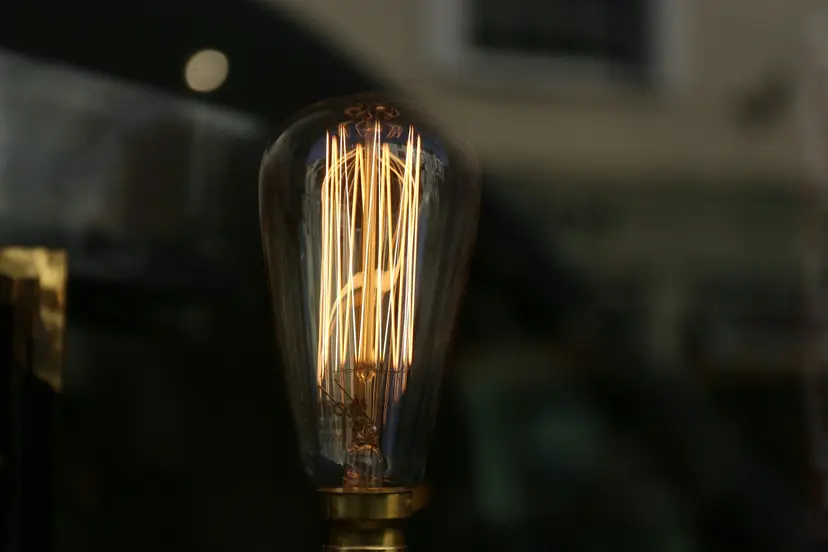Electric stoves have become crucial to modern kitchens due to their efficiency, convenience, and sleek designs. Whether you are a home cook or a professional chef, understanding how electric stoves work and what makes them unique is essential for making the best choice for your cooking needs.
This comprehensive guide, which delves into the types of electric stoves, their benefits, key features, and tips for selecting the right model, ensures you're well-informed and confident in your decision.
What Is an Electric Stove?
An electric stove is a kitchen appliance powered by electricity and designed for cooking food. Unlike gas stoves with an open flame, electric stoves rely on heating elements to generate heat. These elements are controlled by knobs or touch panels, allowing precise temperature adjustments for various cooking methods.
How Does an Electric Stove Work?
Electric stoves convert electrical energy into heat through resistance in their heating elements. The primary components include:
- Heating Elements: Coils or smooth surfaces that heat up when electricity flows through them.
- Control Panel: Regulates the temperature and cooking settings.
- Oven Component: Many electric stoves have an integrated baking and roasting oven.
Types of Electric Stoves
Electric stoves are available in different types, each with its own set of features and advantages. Understanding these types can help you make a better decision.
1. Coil Electric Stoves
- Description: Feature exposed coil burners on the stovetop.
- Pros: Affordable and durable.
- Cons: Difficult to clean and less aesthetically pleasing.
- Example: The GE 30-inch Coil Electric Stove is a popular choice for budget-conscious buyers.
- Where to Buy: GE Appliances or Home Depot.
2. Smooth-Top Electric Stoves
- Description: Have a smooth glass or ceramic surface with heating elements underneath.
- Pros: Sleek appearance, easy to clean, and compatible with most cookware.
- Cons: Can be prone to scratches and requires flat-bottom cookware.
- Example: Samsung's Smooth-Top Electric Range is highly rated for its design and performance.
- Where to Buy: Samsung Official Website or Best Buy.
3. Induction Stoves
- Description: Heat cookware directly rather than the stovetop surface using electromagnetic technology.
- Pros: Extremely energy-efficient, fast heating, and safe (the surface remains cool to the touch).
- Cons: Expensive and requires induction-compatible cookware.
- Example: The Bosch Induction Cooktop is a premium option for modern kitchens.
- Where to Buy: Bosch Home or Wayfair.
4. Dual-Fuel Stoves
- Description: Combine an electric oven with a gas-powered cooktop.
- Pros: Offers gas and electric cooking benefits.
- Cons: Requires both gas and electric connections.
- Example: The Frigidaire Professional Dual-Fuel Range is a top choice for versatility.
- Where to Buy: Frigidaire or Lowe's.
Benefits of Electric Stoves
Electric stoves offer numerous advantages, making them a popular choice for households worldwide:
- Energy Efficiency: Modern electric stoves, especially induction models, consume less energy than gas stoves.
- Easy Cleaning: Smooth-top and induction stoves are easy to clean after cooking.
- Safety: No open flames reduce the risk of accidental fires.
- Consistent Heat: Provides even heat distribution for better cooking results.
- Aesthetic Appeal: Sleek designs enhance the look of your kitchen.
How to Choose the Right Electric Stove
When shopping for an electric stove, consider the below factors to ensure you make the best choice:
1. Cooking Needs
Assess your cooking habits and preferences. An induction stove might be ideal if you cook frequently and need precise control. For occasional use, a coil or smooth-top model could suffice.
2. Size and Fit
Measure your kitchen space to find a stove that fits perfectly. Most electric stoves come in standard sizes, but custom dimensions are available for specific layouts.
3. Features
Look for features that enhance functionality and efficiency, such as:
- Convection Oven: For faster, even baking.
- Self-Cleaning Function: Simplifies oven maintenance.
- Smart Connectivity: Enables remote control via apps.
4. Energy Efficiency
Check for Energy Star ratings or efficiency certifications to save on energy bills.
5. Budget
Set a budget and explore options within your price range. Remember to factor in long-term costs, such as maintenance and energy consumption.
Example: Comparing Coil and Induction Stoves
| Feature | Coil Stove | Induction Stove |
|---|
| Heating Speed | Moderate | Very Fast |
| Energy Efficiency | Moderate | High |
| Cookware | Any | Induction-Compatible Only |
| Cleaning | Difficult | Easy |
| Price | Affordable | Expensive |
Maintenance Tips for Electric Stoves
To ensure your electric stove lasts for years, follow these maintenance tips:
- Regular Cleaning: Wipe the surface after every use to prevent residue buildup.
- Inspect Heating Elements: Check for wear and replace damaged parts promptly.
- Avoid Abrasive Cleaners: Use non-scratch sponges and cleaners designed for electric stoves.
- Use Compatible Cookware: Ensure your cookware matches the stove type to prevent damage.
FAQs About Electric Stoves
1. Are electric stoves more energy-efficient than gas stoves?
Yes, especially induction stoves transfer energy directly to the cookware, reducing energy waste.
2. Can iron pans be used on a smooth-top stove?
Yes, but lift the pan instead of dragging it to avoid scratching the surface.
3. What should I do if my stove stops heating?
Check the power connection, inspect the heating elements, and consult the manufacturer if the issue persists.
Conclusion
Electric stoves are a versatile and efficient addition to any kitchen. By understanding the types available, their benefits, and what to look for, you can confidently choose the best model for your home. Whether you prefer the affordability of a coil stove or the advanced technology of an induction stove, there's an option to suit every cooking style and budget.
For further reading, explore these resources:
Switch to an electric stove today and experience the difference it brings to your cooking experience!
Credits



